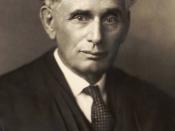"Women: equality, liberty and freedom"
Until the end of Reconstruction in 1877 many women were viewed as objects that had no place in the evolution of society. Eventually women moved themselves out of the imposed shadow of doubt placed upon them and held a conference for the liberation and equality of women in Seneca Falls in the late nineteenth century. However, on the road to Seneca Falls women were able to achieve slight political freedoms but numerous social freedoms that enabled them to tackle reforms and the home.
What would happen if women were to gain equal political status with white, adult, land owning males? The prevalent social and political temperament of the first half of American History would have to change (PEWS 11) because such ideals were unheard of. For example, Puritan women were faced with many obstacles, as well as, opportunities depending on where they resided, like in the New England communities where the economic and political roles of men and women within the church imitated that of their secular roles, where men were the "breadwinners" and women their "dependents" (WR 29).
In Utah, women had suffrage for seventeen years (1870 to the year 1887) before it was taken away by the Edmunds Tucker Act enacted by Congress that disapproved of, perhaps not of women having the right to vote, but the Mormon institution of Polygamy, that was intertwined with their suffrage (PEWS 27) in the state. The relevance of this is that women were moving up in society and perhaps New Englanders did not want to initiate certain rights to women momentarily for the fear of polygamy and so women were held back. Having new rights then having them taken away was not really what was important, rather, the fact that women had initially received these rights...


